President’s Report to the Board of Governors (Nov. 2018)
Click here to view a PDF version of the report.
Reputational and Community Highlights
Fall convocation and presidential installation
At the 2018 Fall Convocation on November 10, 680 undergraduate students and 558 graduate students were awarded degrees. President Benoit-Antoine Bacon was formally installed during the first of two convocation ceremonies.
Finance Minister Bill Morneau helps launch national energy efficiency organization
Efficiency Canada, a unique new organization based at Carleton, aims to bring together a diverse array of allies to advocate for public policies that move Canada toward a more energy efficient future. Finance Minister Bill Morneau joined Carleton President Benoit Antoine-Bacon and Efficiency Canada executive director Corey Diamond to formally launch Efficiency Canada at a reception at Richcraft Hall on November 1.
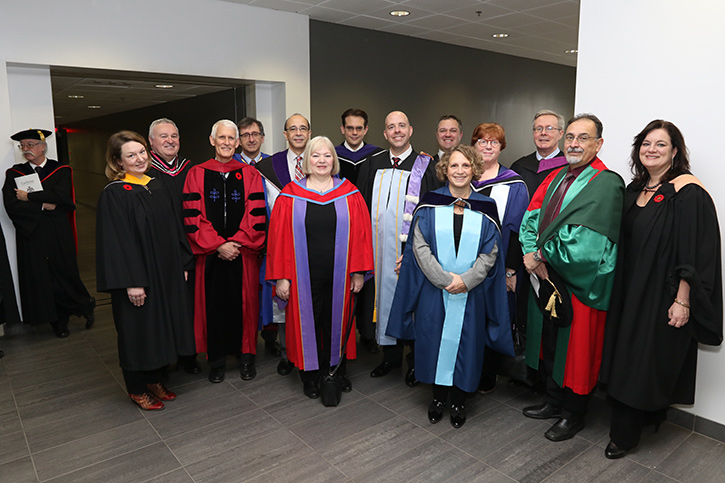
Carleton students shine in Innovative Design for Accessibility competition
Five recent graduates of Carleton’s Bachelor of Industrial Design program captured four top-three finishes — including a first-place win — at the national Innovative Design for Accessibility (IDeA) competition. The annual competition calls on university students from across Canada to develop innovative, cost-effective and practical solutions to accessibility-related issues for people with disabilities.
Carleton achieves top 10 in graduate employability rankings
A new report issued by QS World University Rankings has singled out Carleton as one of the 10 best Canadian universities for graduate employability in 2019. Carleton was recognized in the overall global ranking with its highest scores in the alumni outcomes indicator, placing 163rd out of more than 20,000 universities worldwide, 500 of which were ranked.
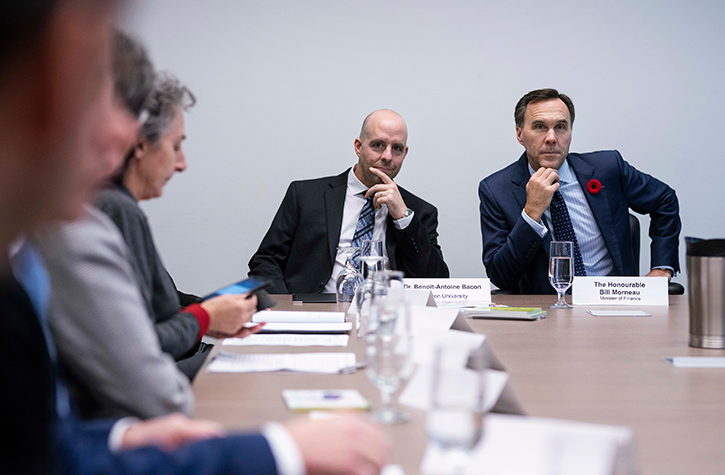
Consulting with our Community
Carleton University Indigenous Strategic Initiatives Committee
The Carleton University Indigenous Strategic Initiatives Committee has been given a mandate by President Benoit-Antoine Bacon to develop a set of Carleton-specific recommendations as part of an institutional response to support the recommendations of the Truth and Reconciliation Commission. The committee will be led by co-chairs Prof. Kahente Horn-Miller from the School of Indigenous and Canadian Studies, Benny Michaud, assistant director of Equity Services responsible for the Centre for Indigenous Initiatives, and Jerry Tomberlin, interim Provost and Vice-President (Academic).
Sexual Violence Policy review
We continue to receive feedback on Carleton’s Sexual Violence Policy as part of the review process. We are currently hosting design-thinking workshops to solicit feedback from the campus community. The objective of these workshops is to host a supportive, creative space wherein members of the community can provide their feedback about the policy by “thinking like a designer.” Participants in the facilitated sessions will use hands-on methods to co-create feedback that focuses on the users of the policy and how it can best serve them.
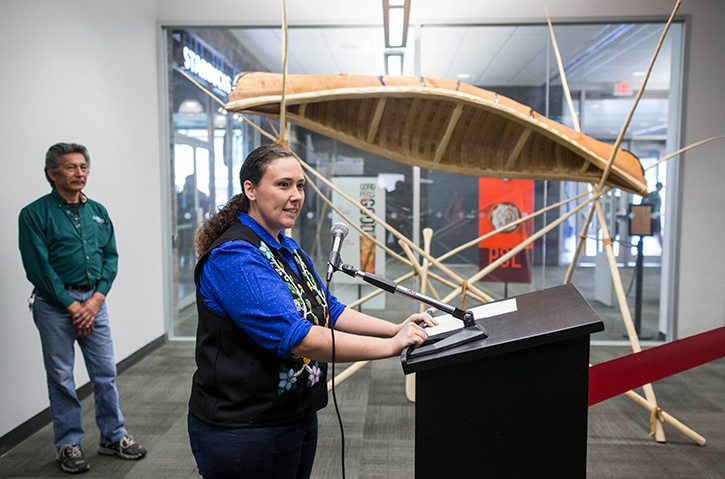
Free Speech Policy
At the September Senate meeting, a small task force led by Betina Appel Kuzmarov, Clerk of Senate, was mandated to produce a draft free speech policy. At the October Senate meeting, the draft policy was presented and Senators supported the general direction of the draft. The draft has since been posted for comments and the task force is in the process of revising the policy based on the 100-plus written comments that were received. The province has mandated that the free speech policy be approved before January 1, 2019.
Coordinated Accessibility Strategy
We have launched a collaborative process to develop Carleton’s Coordinated Accessibility Strategy. This strategy will serve as a framework to guide the university’s commitment and continuous improvement as an accessible campus and help to establish Carleton as a Centre of Excellence in Accessibility.
Transportation strategy launch
In October, Carleton University, in partnership with Parsons, began work to develop a five-year transportation strategy for the campus. To date, meetings have been held with external stakeholders (City of Ottawa, OC Transpo, NCC, Old Ottawa South Community Association) and with the campus community. These sessions focused on receiving ideas and feedback about all areas of transportation that impact the campus. As well, an online questionnaire is being used to gather input.
Focus on Experiential Learning
Experiential Learning Symposium a success
Carleton’s first Experiential Learning Symposium brought together more than 200 faculty, contract instructors, teaching assistants, staff and students on October 23 for a full day of presentations, demonstrations, workshops and displays that showcased experiential learning at the university. Representatives from Carleton’s Education City partner institutions also attended.
New funding for experiential learning
At the Experiential Learning Symposium, Provost Jerry Tomberlin announced the establishment of a new $50,000 Carleton University Experiential Learning Fund, which will provide faculty, instructors and learning support staff with financial support to integrate experiential learning components into academic courses or programs at Carleton.
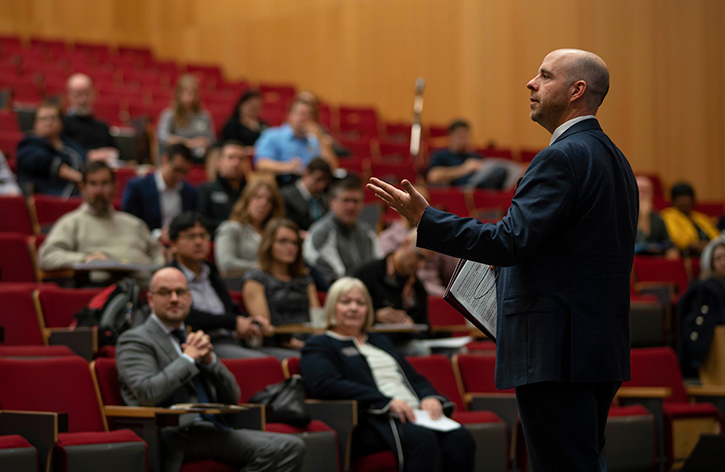
International internships triple
Carleton nearly tripled the number of students participating in international internships in the summer of 2018. Building upon that success and using the Career Ready Fund – Stream 1 funding, we have developed and launched the broader university International Internship Program in partnership with the Faculty of Public Affairs. We have seen great interest with more than 250 students applying to participate.
Sprott expands Project-Based Learning
In an effort to expand experiential learning opportunities and community engagement, the Sprott School of Business continues to grow its Project-Based Learning initiative, which aims to provide every third- and fourth-year business student with direct experience in working on real projects with local organizations.
Experiential learning about reconciliation for journalism students
Stories North, the creation of Journalism Prof. Kanina Holmes, sent 21 upper-year undergraduate and master’s students to the Yukon and northern British Columbia this past July with a goal of expanding the narratives surrounding reconciliation by listening to First Nation stories and providing platforms for their voices to be heard. The course aims to increase intercultural understanding, empathy and mutual respect.
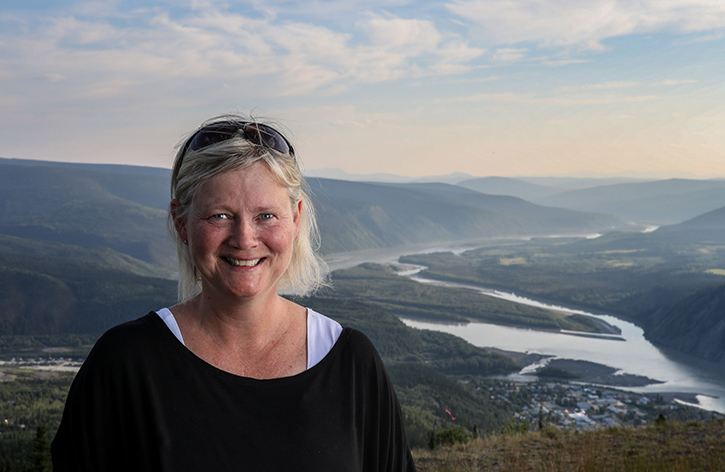
New Biotechnology internship
The Biotechnology program partnered with the National Research Council’s Human Health Therapeutics team to deliver the first NRC-CU Biotechnology Internship. Held during the fall reading week, the internship provided 25 undergraduate students with the opportunity to design hypothetical biotechnology start-ups at the NRC’s active research facility in Ottawa.
Strong interest in undergraduate research
A record number 66 applications were received for the opportunity to receive up to $2,250 for faculty-supervised research through the Internship-Carleton University Research Experience for Undergraduate Students (I-CUREUS) program offered by the Discovery Centre.
Research and Innovation
Physics Prof. Manuella Vincter has been named Deputy Spokesperson at ATLAS, the largest particle detector ever built and one of four major experiments at CERN, the most prestigious scientific facility in the world, site of the Higgs boson discovery.
Biology Prof. Lenore Fahrig received the Royal Society of Canada’s Miroslaw Romanowski Medal. Lenore is an expert in road ecology, habitat connectivity and fragmentation, and sustainable agriculture.
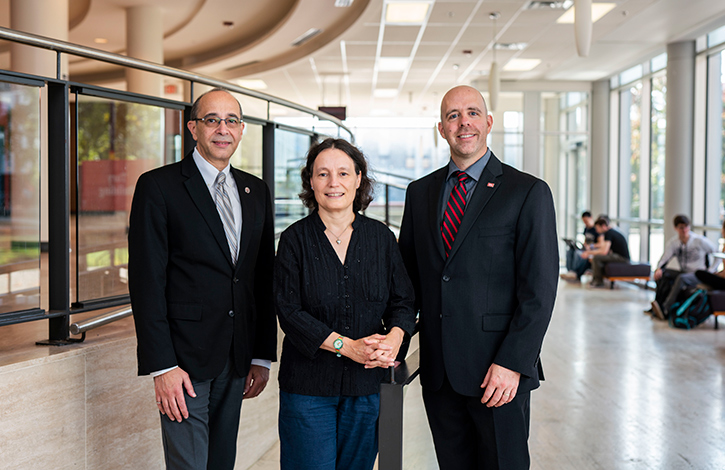
Prof. Chris Burn from the Department of Geography and Environmental Studies was awarded the Canadian Polar Medal for Northern Research. Burn is an internationally recognized expert on permafrost and ground ice in the Yukon and western Arctic.
Biology Prof. Kyle Biggar received a Banting Discovery Award for his research on lung cancer development.
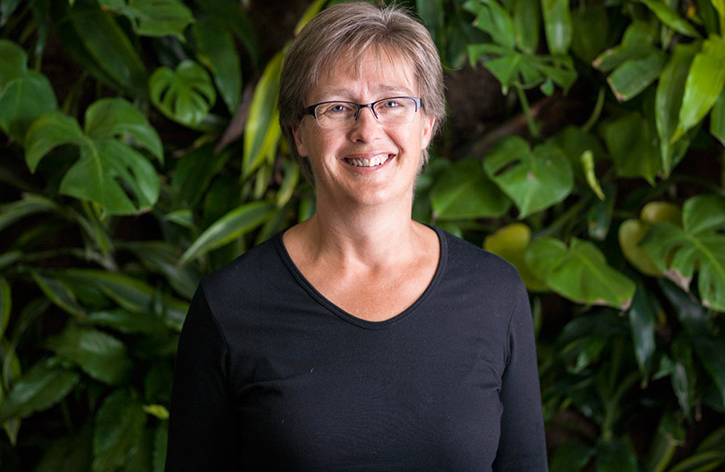
Carleton’s Immersive Media Studio, led by Prof. Stephen Fai from the Azrieli School of Architecture and Urbanism, won two prestigious industry awards: the CanBIM Academic and Best in Innovation Awards.
Health Sciences Prof. Paul Peters presented on Parliament Hill on October 30 at an event hosted by the Parliamentary Health Research Caucus and Research Canada. Attended by cabinet ministers, MPs, Senators and CEOs of health organizations, Peters presented his work on designing and engaging patients in flexible policy for rural health systems.
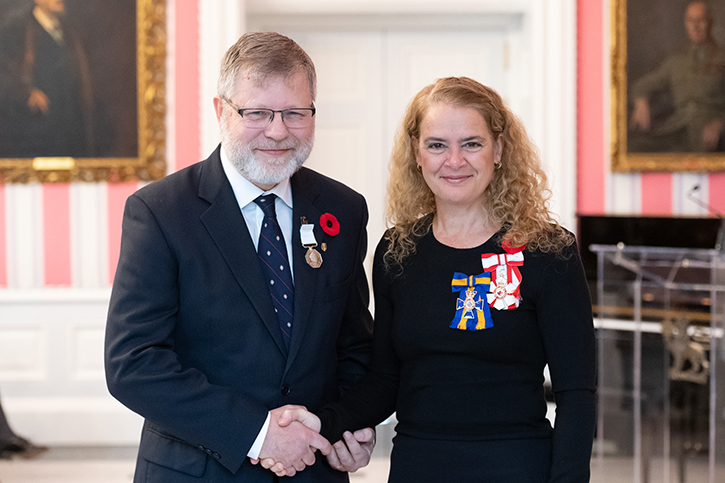
Carleton received $8.5 million in research funding from NSERC in the form of Discovery Accelerator Supplements (DAS), Discovery Grants (DG), Research Tools and Instruments (RTI) Grants and Northern Research Supplement Grants (NRS). Notably, Mechanical and Aerospace Engineering Prof. Matthew Johnson received a DAS grant to study air pollution emissions in the upstream oil and gas sector.
Student Life and Community
We have launched a Student Support Certificate for faculty and staff. The certificate is comprised of various workshops and is designed to help faculty and staff at Carleton enhance their capacity to address student needs. The certificate provides growth and development opportunities aligned with the Canadian Association of College and University Student Services’ (CACUSS) competency model.
Carleton has formally established the Research, Education, Accessibility and Design (READ) Initiative. Over the next two years, Carleton plans to establish the READ Initiative Centre of Excellence in Accessibility at Carleton. This area coincides with the timeframe for the implementation of the new federal accessibility legislation, with the opportunity for Carleton to reaffirm its position as a national leader in accessibility.
Two new classrooms opened in fall 2018: the Health Science Lecture Theatre, a unique room that provides collaborative learning spaces for more than 330 students, and 372 Residence Commons, a temporary classroom that was required to address exceedingly high classroom space utilization rates.
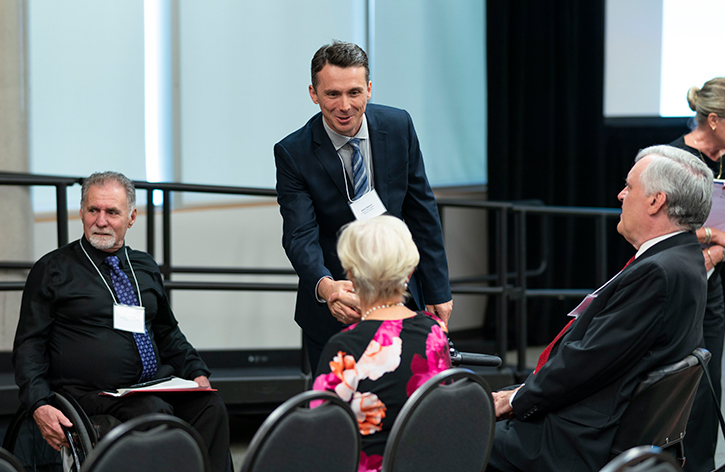
A number of career events were held for students in September and October: The part-time job fair saw 24 companies attend compared to 19 in 2017; the first ever three-day career fair sold out and featured a total of 73 companies, including IBM, Nokia, Ericsson and the Canadian Revenue Agency; the Global Internship Fair saw 15 international partners speak about the opportunities available within their organizations.
We have seen record registrations in community programs in the Department of Recreation and Athletics. Our adult leagues are up 10 percent on average across all sport programs, including 151 hockey teams, 41 soccer teams and 20 basketball teams. Junior Ravens programs are up 36 percent in registration, with 1,097 children registered this fall.
The annual Panda Game on September 29 drew another record sellout crowd of over 24,000. Unfortunately, the Ravens men’s football team lost a close game, 27-38. Can’t win them all!
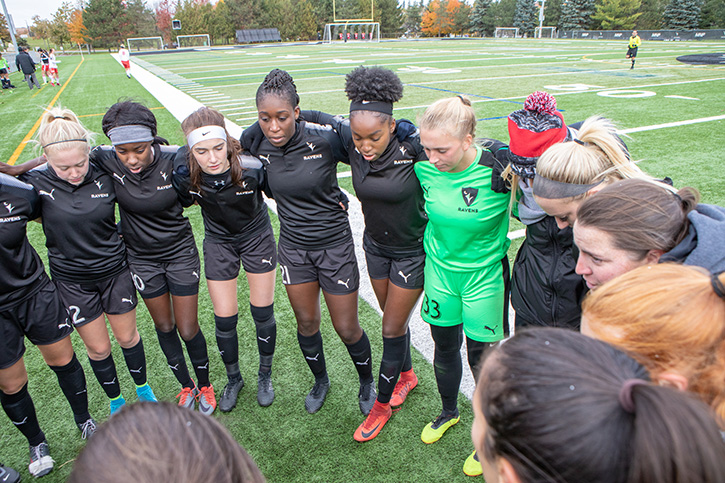
The women’s rugby team advanced to the playoffs for the first time in its history while head coach Patrick Thompson was named U SPORTS Coach of the Year, winning the Jim Atkinson Award. The men’s and women’s rugby teams also hosted an inclusive jamboree for children with special needs on October 17.
Soccer teams shine as the men’s team are currently ranked No. 3 in the country and vying for the national title, which will take place November 8 to 11 at UBC, while the women’s team, in its rebuilding year, had an impressive 11 game winning streak and narrowly lost (1-0) to the University of Toronto Blues in the quarter-finals of the OUA playoffs.
Focus on Mental Health — New Initiatives
This fall, we have begun piloting a mental health peer support program in collaboration with the Student Experience Office’s newly developed Community Connections program, with a focus on students who may be struggling with low-to-moderate mental health issues. The program will match upper year trained mentors with students needing additional peer support and will provide a customized program to aid students in becoming more familiar with resources and skills to improve their overall mental health and well-being.
In consultation with the Graduate Students’ Association (GSA), a mental health peer support program will also be piloted for graduate students with low-to-moderate mental health needs in January 2019. The program will operate on a drop-in basis and will be located in the GSA’s lounge and boardroom. A coordinator has been hired by Carleton in consultation with the GSA to develop and implement the program, supervise and train the volunteers and design workshops. In addition, a counsellor has been hired by Health and Counselling Services who will provide graduate student specific counselling two days a week.
A full-day training program for peer mentors was piloted in October, based on best practices, to expand peer-helping skills and improve our mentors’ capacity to recognize signs and symptoms of emerging mental health issues and to provide support and resources accordingly. Topics included the Mental Health Continuum, an overview of mental health disorders, how to support a peer in distress and anti-oppression training.
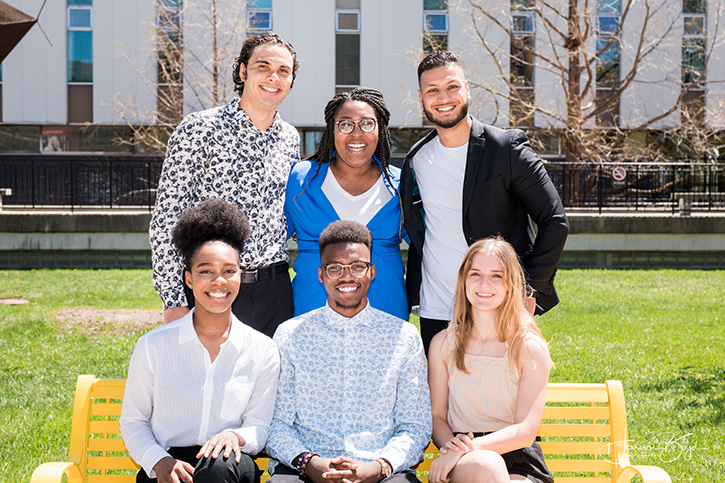
This fall, we will be piloting a Supporting a Friend workshop led by students for students. In this 90-minute workshop, students will learn about tools and strategies for helping a friend in distress, practice their skills, emphasize the importance of reflecting after having a helping conversation and take steps to increasing their competency in mental health to help build a positive community.
Carleton University and CUSA have partnered to provide undergraduate students with free access to Empower Me. Empower Me is an additional mental health service that is available 24/7, 365 days per week and allows students to connect with professional counsellors in the community by telephone, in-person or through video-conferencing.
CUSA has begun a new initiative called Wellness Wednesdays that aims to promote mental well-being by organizing an activity on campus every Wednesday, such as art therapy and self-care nights. Wellness Wednesdays focus on addressing eight different areas of student life, called the “eight dimensions of wellness”: emotional, physical, intellectual, financial, environmental, occupational, spiritual and social.
Great Events on Campus
Carleton kicks off national research celebration
On November 12, Carleton hosted the national launch of Universities Canada’s “Open Doors, Open Knowledge” week, a celebration of federal government support for research in Canada. During the university open house, campuses across the country invited their MPs and other stakeholders to visit and learn about their investments in research.
First Psychology Mental Health Day
On October 18, Carleton’s Psychology department hosted the university’s first Psychology Mental Health Day, which was aimed at raising awareness, providing education on mental health issues and promoting wellbeing, with the ultimate goal of connecting the university community to resources both on and off campus.
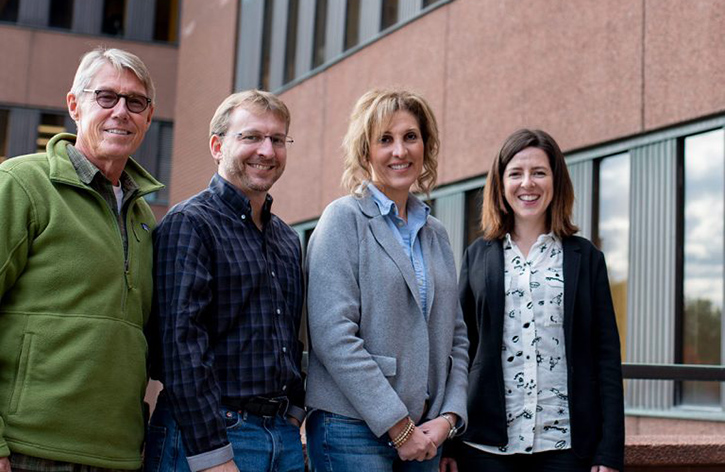
Architecture turns 50 and Communications turns 40
The Azrieli School of Architecture and Urbanism celebrated its 50th anniversary at a two-day event in October called FORWARD>50. Carleton’s Communication and Media Studies program celebrated its 40th anniversary in September.
Education City Innovation Workshop
Carleton sent more than 20, faculty, staff, students and senior administrators to an Education City innovation workshop hosted by College La Cité on November 9 to bring forward ideas for collaboration.
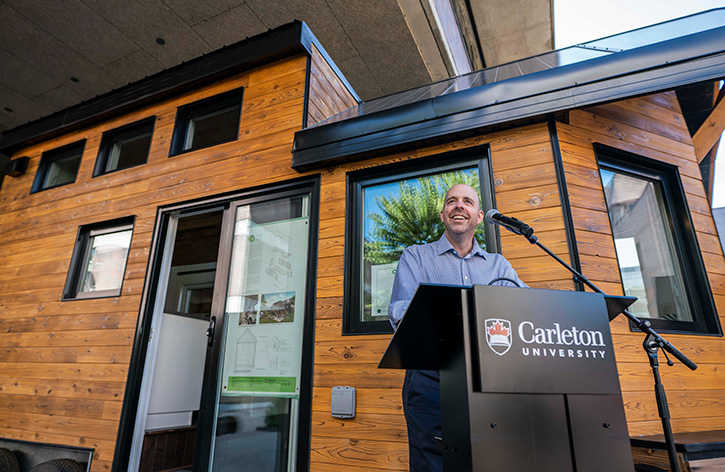
Tiny open house
Carleton’s Northern Nomad tiny house was inaugurated on September 8. It demonstrates how an Ottawa-based home can have a net-zero energy footprint and on-site water generation. The project, which began as a fourth-year Engineering capstone class project, is equipped with sensors and monitors that researchers will use to collect data and perform energy conservation research.
Orientation for new diplomats
A record 175 newly arrived ambassadors, high commissioners, deputy heads of mission, military attaches and other members of the diplomatic community representing 60 countries registered for the 8th Annual Orientation for Newly Arrived Diplomats at Carleton on September 24. The event was hosted by the Carleton Initiative for Parliamentary and Diplomatic Engagement.
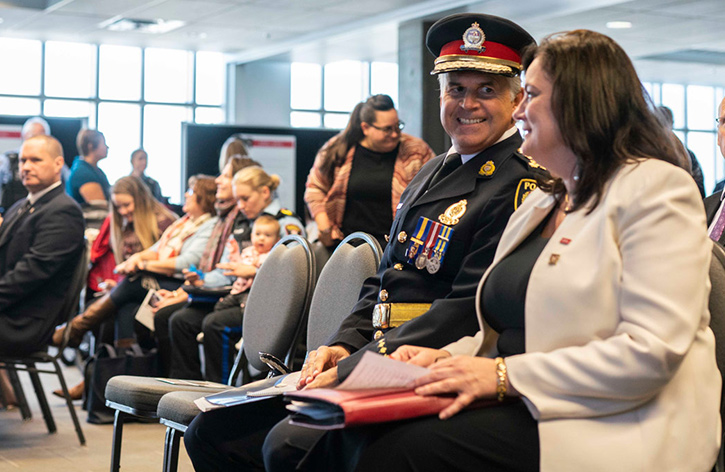
25th Anniversary of the Special Constable Service
Carleton University’s Special Constable Service celebrated 25 years of serving the campus. A special event to mark this milestone was held on October 18. An estimated 150 faculty, staff, students and former Special Constables, as well as Ottawa Police Chief Charles Bordeleau, attended the celebration.
Enrolment and Recruitment Update
| 2017 | 2018 | % difference | |
| Fall first-year, full-time students | 6,523 | 6,429 | -1.4% |
| Fall first-year, full-time students (new) | 5,498 | 5,344 | -2.8% |
| Fall full-time undergraduate (degree programs) | 21,289 | 21,647 | 1.7% |
| Fall full-time international undergraduate (degree programs) | 2,442 | 2,577 | 5.5% |
| Fall full-time Master’s* | 2,481 | 2,437 | -1.8% |
| Fall eligible FTE Master’s | 1,883.2 | 1,870.5 | -0.7% |
| Fall full-time PhD | 953 | 909 | -4.7% |
| Fall eligible FTE PhD | 697.6 | 731 | 4.8% |
| Two-year retention rate (CSRDE methodology) | 81.0% | 81.3% | 0.3% |
*Includes Graduate Diplomas/Certificates, excludes off-campus MBA and Dominicanstudents
**OIRP – Provincial count date (Nov 1) 2018 numbers are estimated. October 22, 2018
Over 100 Carleton Faculty, Staff and Students, were in Toronto in late September for the annual Ontario Universities’ Fair. Our booth and presentation looked great and we made contact with thousands of prospective students. Follow-up emails were issued to each interested student in record time.
Carleton’s recruitment team has completed more than 600 Canadian high school visits this fall and more than 200 international high school visits and events across the Indian subcontinent, Europe and Eurasia, Scandinavia, Latin America, Southeast Asia and the Middle East. Additional visits are scheduled throughout the year.
Carleton hosted 110 guidance counsellors on October 19 for the annual Guidance Breakfast. Counsellors were welcomed by President Benoit-Antoine Bacon, followed by a presentation from Faculty of Science Dean Chuck Macdonald who provided an overview of the faculty and its new Interdisciplinary Science and Practice program.
Fall Open Houses were held on October 20 (Engineering and Design, Science: close to 1,700 participants) and October 27 (Arts and Social Sciences, Public Affairs and Sprott School of Business: 2,000 participants). Students from the Bachelor of Music program performed throughout the October 27 open house, showcasing the wide variety of musical instruments and traditions taught in this program.